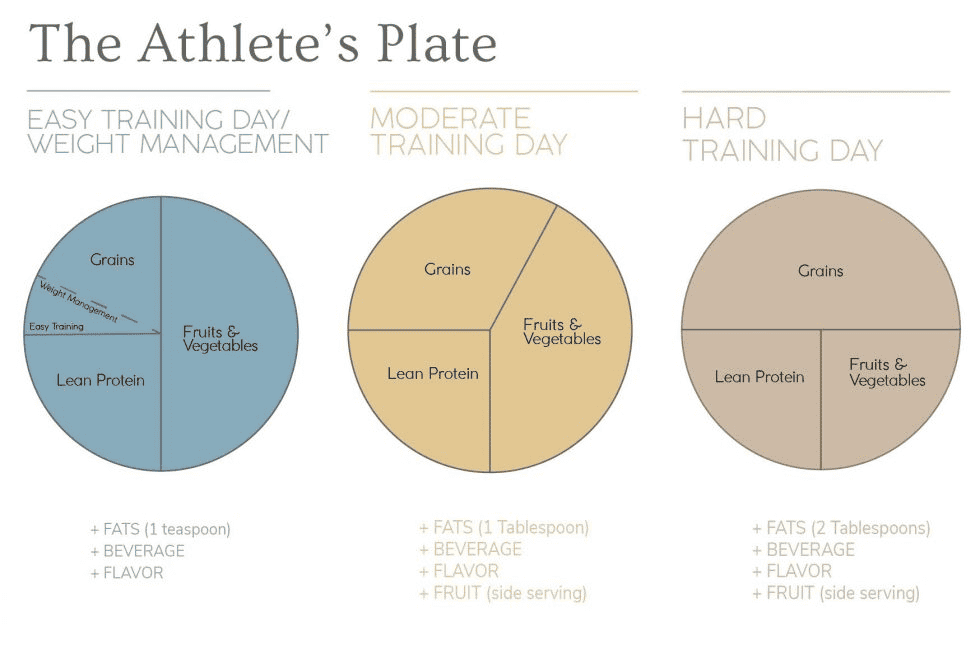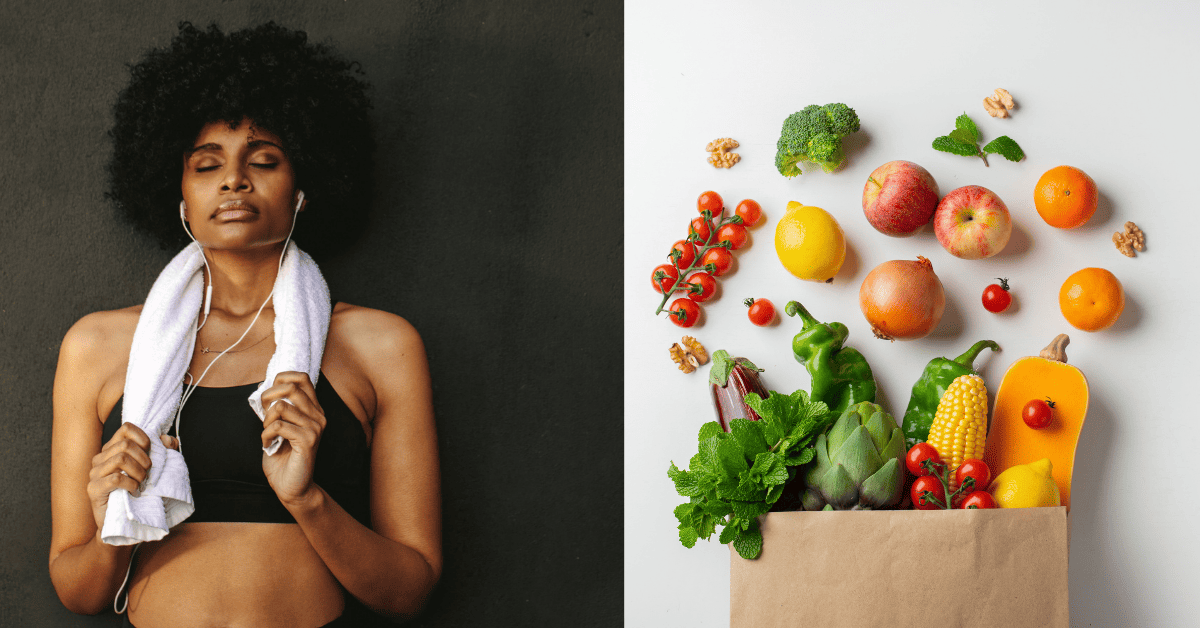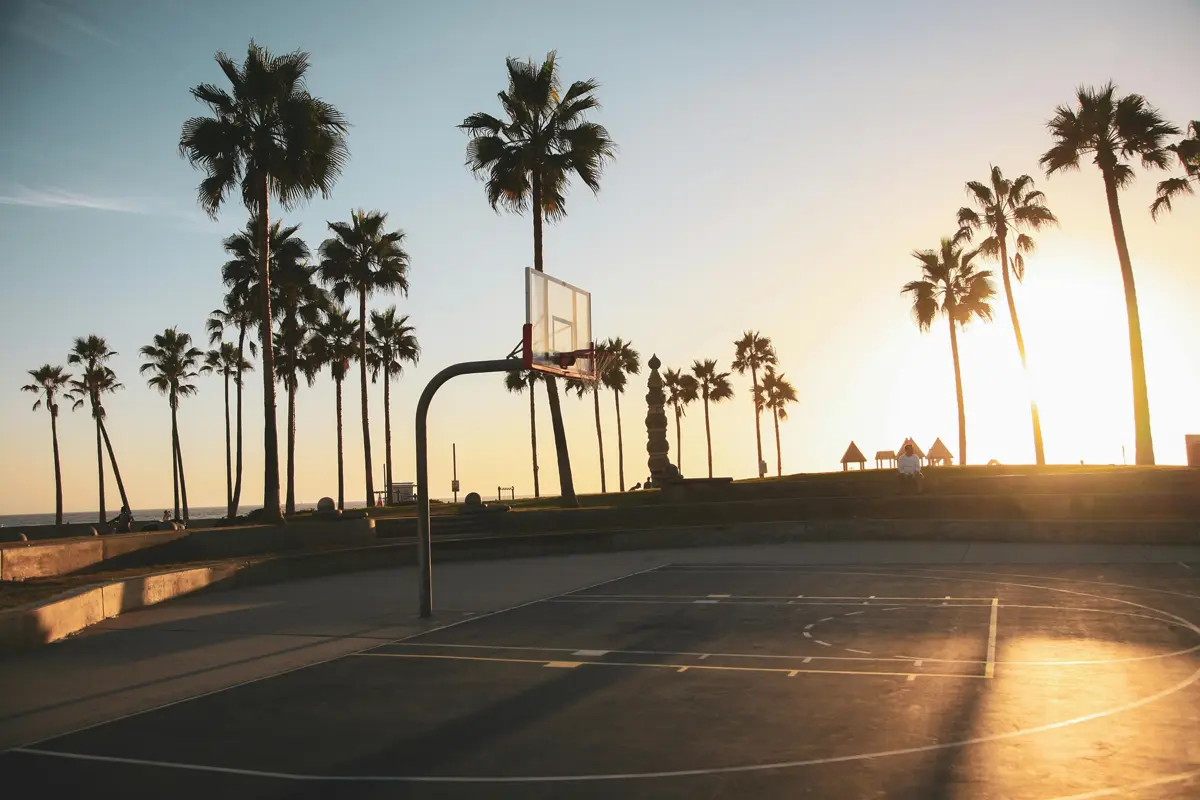The right nutrition is important for adult athletes at any level. Whether you play semi-pro sports or in a casual recreational league (I’m talking to you, kickballers and dodgeballers), a proper diet is fuel for optimal performance.
So what are important aspects of diet and nutrition adult athletes should consider? I talked to Claire Wood of Nutrigility to find out. Claire has a master’s degree in nutrition and exercise physiology and is also a Registered Dietitian Nutritionist (RDN). As if that weren’t enough to lend to her credibility, she was also a Division 1 soccer player in college (George Washington University).
Someone like Claire understands the mindset of athletes, a mindset I delved into for my blog post on former D1 athletes. While we may not all have played sports collegiately, typically, we understand how our bodies respond during a sport depending on what we put into our mouths. For example, eating a giant stack of chocolate chip pancakes slathered in peanut butter an hour before a soccer game might not have been one of my best decisions.
Balance Is Key For An Adult Athlete’s Diet And Nutrition
Claire stresses the importance of recreational adult athletes having basic knowledge of what to eat to perform well in both daily activities and sports.
“If you’re getting protein and carbohydrates and healthy fats, you have a balanced plate that has the fuel your body needs on a daily basis, and you’re setting yourself up for success,” Claire explains.
Adult Athletes Should Be Careful Not To Under-Fuel Their Diets
She also warns about the dangers of under-fueling if you’re an athlete. Not giving your body the adequate nutrition it needs to play sports can make you prone to injury. “If someone is under-fueling, their body will hold on to that fuel for vital functions, so over time, this can lead to injuries like stress fractures,” says Claire.

So what exactly does under-fueling mean? Of course, the first thing that comes to mind is not eating enough calories. Under-fueling can also mean not getting enough of the right macronutrients, like carbohydrates (carbs, proteins, and fats are the trinity of macronutrients).
For example, if you’re more than just a casual adult recreational athlete but rather a hardcore triathlete or endurance athlete, and you’re more focused on protein than carbs, it can be detrimental to your performance and put you at risk for injury. Your carbohydrate needs are much greater than those of someone playing catcher in a Tuesday night softball game. Get updates and exclusive special offers. No spam–just valuable content. join the aps squad
“If you aren’t optimizing your carb intake and the amount of carbohydrates that are stored, you aren’t starting with a full tank. This can also negatively impact glucose regulation,” explains Claire. Again, balance is the name of the game. But so is meal timing.
When It Comes To An Adult Athlete’s Diet and Nutrition, Timing Is Everything
While diet and nutrition advice is constantly evolving and diet fads come and go, one piece of tried and true diet and nutrition advice to consider if you’re an adult athlete is the timing of your meals.
“If you’re eating a meal, we definitely want to aim for around at least two hours before intense exercise,” Claire recommends, “because a meal typically has nutrients that are hard to digest right away, so you need to allow your body time to process that.”
If it’s been more than four hours and you’re about to play sports, a full meal is too much, but you should have a snack. And no, not Oreos. Claire says the snack should be something easily digestible that will still provide you fuel for performance.
“You would look for some type of carbohydrate source, like a banana or raisins or a little piece of toast with honey on it with a little peanut butter,” she suggests. “You don’t want to have too much fat or too much protein beforehand because those slow down digestion and can cause gastrointestinal upset.”
Even if you’re not playing a sport that day, Claire suggests eating every three to four hours to keep your glucose stable. “A lot of times when people go longer [without eating], their glucose tanks, and they’re just ravenous, so they start eating everything in front of them.* Maybe they’re not making the best choices because they’re so hungry.”
*Guilty as charged.
The Role Of Age In An Adult Athlete’s Dietary Needs
Since Adults Play Sports focuses on adult athletes of all ages, I asked Claire if there are different things to consider for athletes in their twenties and thirties versus those in their forties, fifties, sixties, and beyond. Simply put, she said it comes down to caloric intake.
A very active 20-year-old male might need 4000 calories a day, while an older, petite female athlete might only need 1500 calories to sustain herself, even when she plays a sport. It’s important to be in tune with your body, and if there’s confusion, this is where meeting with a dietitian can be beneficial.
“We know that, in general, calorie intake changes quite drastically with someone in their twenties versus someone who is 65 years old. Metabolism slows down as we age and bone loss can also increase. When people are [older] we promote making sure they have enough protein,” Claire explains.
The Lowdown On Protein
Speaking of protein, it has been front and center in recent years, sort of looked at as this magic bullet to build a muscular physique. And while it certainly plays a part in musculature, it’s also important to not overdo it. Take too much, and you get to the point of diminishing returns.
“I typically say not to go over 30-35 grams of protein per meal. Your body is just not going to absorb it as well,” says Claire. “So if you think you’re getting 60 grams of protein [absorbed] in a meal, where you’re really only getting about half that, now maybe you’re too full, and it’s impacting the amount of nutrients you’re actually getting because you’re trying to overload. If you can space it out, it’s much more efficient.”
The Hydration Factor
Beyond food, proper hydration is also important for adult athletes. A competitive athlete who is a hard-charger needs to ensure they stay properly hydrated, but so does the starter athlete who might be a bit overweight and not used to pushing themselves. Both need to recover what they sweat out. Electrolytes can help recovery and avoid dehydration as well, particularly if you’re playing an intense sport on a very hot day.
Nutritional Transition For Former College Athletes
Being a former D1 athlete, Claire has a special place in her heart for those athletes, particularly the ones who are getting out into the real world.
“There aren’t a lot of resources out there to help people in that transition,” she says. Her number one piece of advice to them? “Be in tune with yourself. In college athletics, we’re told to push, push, push, and we aren’t listening to our bodies, and that’s why injuries happen.”
Claire continues, “And then you get out, and you’re still thinking, ‘What do I have to do? What exercise am I supposed to be doing?’ and you’re in this mentality of what other people are expecting versus what your body wants now. So it’s really like start with the basics again.”
The One Piece Of Nutrition Advice For All Adult Athletes
Whether you’re a young or old adult athlete, a former D1 athlete, or a new adult athlete, that one piece of advice from Claire transcends all–be in tune with your body and trust yourself. “You are the only one that can tell how hungry you are or what’s off. It’s very much like getting back to who you are and what you need and focus on that from the get-go.”
Claire offers some great insight on the Nutrigility website, including a blog post about what the athlete’s plate should look like based on their training intensity that day

Go Ahead–Eat The Ice Cream (Sometimes)
And if you like a little ice cream every once in a while, you get the green light from Claire. “If you have vegetables and whole grains and lean proteins at your meals, if you feel like you’re a little hungry for ice cream, that’s not going to derail you. If anything, it’s going to make you happier because you won’t feel like you’re restricting yourself.
Balance is the running theme throughout this post, so don’t be afraid of certain foods because they aren’t the healthiest–just eat them in moderation.
Playing sports as an adult has a lot of benefits, mentally, socially, and physically. Plus, you feel a whole lot less guilty destroying a plate of nachos every once in a while after you’ve exhausted yourself competing in a game you love.



